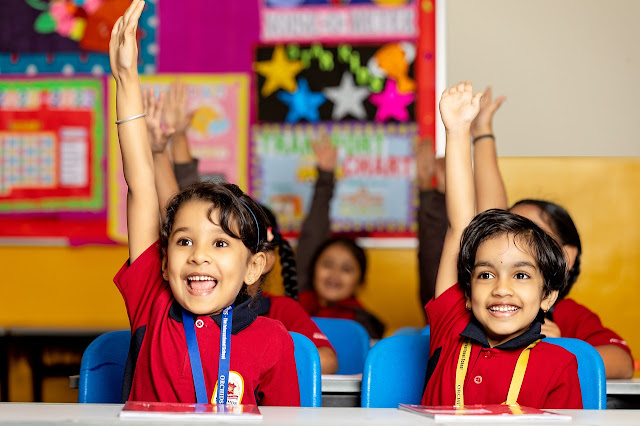The National Education Policy (NEP) 2020, which was approved by the Union Cabinet on July 29, 2020, has introduced a new school education structure in India, known as the 5+3+3+4 model. The 10+2 structure that was in place earlier was primarily based on rote learning and focused on academic excellence rather than overall development. The NEP 2020 (read salient features of NEP) recognizes the need to shift the focus from academic excellence to overall development and proposes a 5+3+3+4 structure to achieve this. Let's take a detailed look at each stage of this new education structure:
Foundational Stage (Age 3-8 Years)
The foundational stage covers the first 5 years of a child's education, starting from the age of 3. This stage is divided into two parts: the first three years (ages 3-6) will be covered in Anganwadis, pre-schools, or Balvatikas, and the next two years (ages 6-8) will be covered in primary schools. This stage is primarily aimed at providing a strong foundation for cognitive, emotional, and physical development through play-based and activity-based learning. The focus of education at this stage is on building foundational skills such as language, numeracy, environmental awareness, and social skills. The teaching approach is designed to be child-centric, encouraging students to learn at their own pace and promoting their holistic development.
Preparatory Stage (Age 8-11 Years)
The preparatory stage covers the next 3 years of a child's education, from ages 8 to 11, and includes classes 3, 4, and 5. This stage is aimed at providing a more activity-based and interactive learning environment that builds on the foundational stage. The focus of education at this stage is on developing conceptual understanding and problem-solving skills. The curriculum is designed to be interdisciplinary and will include subjects such as mathematics, science, social sciences, art, and languages. The teaching approach will encourage students to explore their interests and develop their critical thinking skills.
Middle Stage (Age 11-14 Years)
The middle stage covers the next 3 years of a child's education, from ages 11 to 14, and includes classes 6, 7, and 8. The focus of education at this stage is on developing core competencies, including analytical thinking, problem-solving, and creative expression. The middle-stage curriculum emphasizes the integration of various subjects to provide a multidisciplinary approach to learning. This is achieved through project-based learning, which encourages students to work collaboratively and apply their knowledge and skills in real-world contexts. Students are also encouraged to undertake field trips, participate in cultural activities, and engage in community service projects to enhance their learning experiences. The teaching approach will encourage students to take ownership of their learning and develop self-regulation skills.
Secondary Stage (Age 14-18 Years)
The secondary stage covers the final 4 years of a child's education, from ages 14 to 18, and includes classes 9 to 12. This stage is aimed at providing a more specialized and in-depth learning environment that prepares students for higher education and the workforce. The focus of education at this stage is on developing specialized knowledge and skills in a range of subjects. The curriculum is designed to be flexible and students will have the option to choose from a range of subjects based on their interests and career goals. The teaching approach will encourage students to develop problem-solving skills and promote critical thinking, collaboration, and communication. Board exams will continue to be held as a way to assess students' learning and knowledge. However, the policy emphasizes that the board exams should be re-designed to be more "competency-based" rather than just "content-based."
Overall, the change proposed by National Education Policy 2020 in the structure of school education has been brought essentially to bring flexibility and freedom in the way a child pursues education. Education is fundamentally about knowing rather than knowledge, which in this new world is obsolete. Technology has made content-based education irrelevant as anyone with a smartphone can access it online at any time, so the need of the times is an education that develops the intelligence of a kid and provides a more student-centered and experiential learning environment that fosters the holistic development of students.
Tags
NEP 2020

